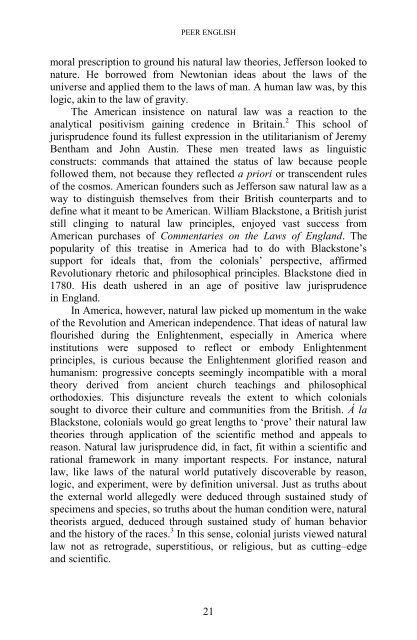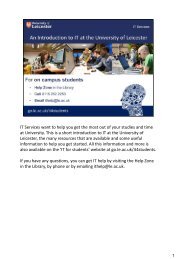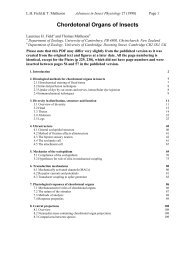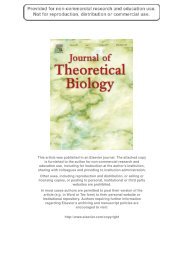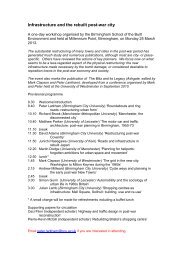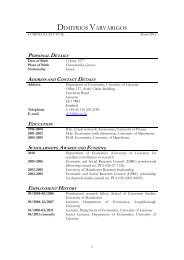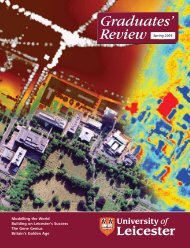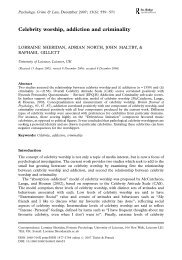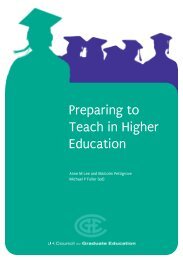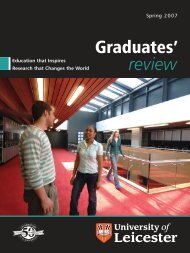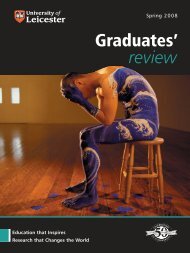From Natural Law to Natural Inferiority
From Natural Law to Natural Inferiority
From Natural Law to Natural Inferiority
You also want an ePaper? Increase the reach of your titles
YUMPU automatically turns print PDFs into web optimized ePapers that Google loves.
PEER ENGLISHmoral prescription <strong>to</strong> ground his natural law theories, Jefferson looked <strong>to</strong>nature. He borrowed from New<strong>to</strong>nian ideas about the laws of theuniverse and applied them <strong>to</strong> the laws of man. A human law was, by thislogic, akin <strong>to</strong> the law of gravity.The American insistence on natural law was a reaction <strong>to</strong> theanalytical positivism gaining credence in Britain. 2 This school ofjurisprudence found its fullest expression in the utilitarianism of JeremyBentham and John Austin. These men treated laws as linguisticconstructs: commands that attained the status of law because peoplefollowed them, not because they reflected a priori or transcendent rulesof the cosmos. American founders such as Jefferson saw natural law as away <strong>to</strong> distinguish themselves from their British counterparts and <strong>to</strong>define what it meant <strong>to</strong> be American. William Blacks<strong>to</strong>ne, a British juriststill clinging <strong>to</strong> natural law principles, enjoyed vast success fromAmerican purchases of Commentaries on the <strong>Law</strong>s of England. Thepopularity of this treatise in America had <strong>to</strong> do with Blacks<strong>to</strong>ne’ssupport for ideals that, from the colonials’ perspective, affirmedRevolutionary rhe<strong>to</strong>ric and philosophical principles. Blacks<strong>to</strong>ne died in1780. His death ushered in an age of positive law jurisprudenceintEngland.In America, however, natural law picked up momentum in the wakeof the Revolution and American independence. That ideas of natural lawflourished during the Enlightenment, especially in America whereinstitutions were supposed <strong>to</strong> reflect or embody Enlightenmentprinciples, is curious because the Enlightenment glorified reason andhumanism: progressive concepts seemingly incompatible with a moraltheory derived from ancient church teachings and philosophicalorthodoxies. This disjuncture reveals the extent <strong>to</strong> which colonialssought <strong>to</strong> divorce their culture and communities from the British. Á laBlacks<strong>to</strong>ne, colonials would go great lengths <strong>to</strong> ‘prove’ their natural lawtheories through application of the scientific method and appeals <strong>to</strong>reason. <strong>Natural</strong> law jurisprudence did, in fact, fit within a scientific andrational framework in many important respects. For instance, naturallaw, like laws of the natural world putatively discoverable by reason,logic, and experiment, were by definition universal. Just as truths aboutthe external world allegedly were deduced through sustained study ofspecimens and species, so truths about the human condition were, naturaltheorists argued, deduced through sustained study of human behaviorand the his<strong>to</strong>ry of the races. 3 In this sense, colonial jurists viewed naturallaw not as retrograde, superstitious, or religious, but as cutting–edgeandtscientific.21


